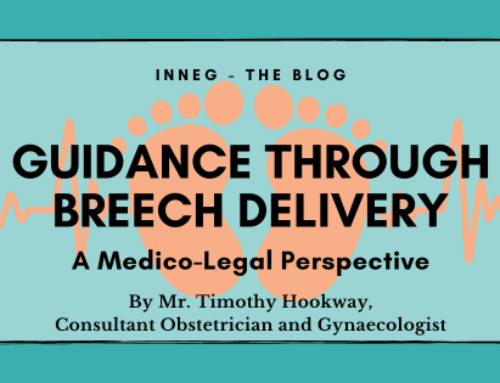GP Care and Covid19
An analysis of remote consultations and the influence they might have on clinical negligence claims
This month, we approached 3 of our top GP expert witnesses for their thoughts and opinions on one of the biggest and most prevalent topics in the medico-legal world…
Given how Covid 19 has impacted GP Practices, particularly with the growing use of video examinations in replacement of face-to-face consultations, is this impacting on clinical diagnosis and patient care and does this in turn impact negligence litigation and future claims?
Here is what they had to say…
Q1: Do you think that remote consultations in themselves are a good or bad addition to a GP practice? And why?
Dr. James Hampton (JH) – Remote consultations have always had a small part to play in general practice, but it is now completely out of hand. I am doing various locums and seeing patients that have been badly managed via telephone.
With all the real estate etc. tied up, the GP’s need to be careful. It would be much cheaper to contract out to another country.
We already know that 111 is a) very expensive and b) not something you would necessarily want your relatives to use.
Dr. Jonathan Lieberman (JL) – They are a very good addition to a GP practice and have the potential to be a great resource and make much better use of a GP’s time. However, they must be utilised correctly.
Dr. Tony Feltbower (TF) – Good. It offers patient choice and many issues can be adequately and safely dealt with without a face to face consultation.
Q2: Considering that video consultations are likely here to stay, what is your perspective on how a GP practice should be managing the balance between offering video and face2face consultations.
JH – Unless the patient cannot get to the surgery, it is quicker and safer to conduct a f2f examination.
JL – The issue is that video examinations are being overused and used in areas where it is not safe to do so.
Video consultations are perfect for those where you clinically need to see the patient, such as requests for repeat prescriptions and for sick notes for patients with chronic problems that haven’t changes. Things that don’t require a face2face consultation.
Also, it is important to remember that the GP is there to provide a service to the public and so should be providing a service that is flexible and user friendly. There has to be a facility for those who can’t use technology. As an example, an elderly client may be disenfranchised from even calling the GP if they don’t necessarily have the tech skills to access the services online.
A GP practice needs to draw up protocols to ensure safety remains paramount. The primary question is “Can I be sure that the patient does not have a serious condition that I can only diagnoses with a face2face examination?” The most important role of the GP is to ensure they are not missing something which if left could have disastrous consequences for the patient.
As an Example of a recent claim I saw: An elderly patient calls with a very acutely painful leg. According to the GP, he asked her if it was hot, red or swollen and the lady replied to say that it looked entirely normal but that it really hurt. The doctor wrote in the notes that it was likely arthritis and subsequently it was discovered that this lady had an acutely ischemic leg and a serious vascular issue. Clearly this was a breach of duty as the GP could not have been sure of their diagnosis and did not follow up with a face2face consultation to clarify her condition.
TF – It is always a clinical decision based on the information available but once a remote consultation has started it may become clear that a face 2 face consultation is required and this should then be offered and recommended by the treating doctor.
Q3: Do you believe that video consultations will lead to increased delays and/or misdiagnosis or (just like any negligence claim) is down to the quality of the Doctor undertaking the consultation?
JH – I have no doubt that there are delays and misdiagnoses. First hand I have seen many examples since I started doing locums in March 2020. Some doctors make bad decisions face 2 face. They are unlikely to improve on their decision making by doing remote. Surgeries I am working in are still way below 50% f2f.
JL – Yes it will. GP’s have too much to do which means that they at times need to understand the balance and use clinical judgement. Most of the negligence is relating to GP’s not doing what they should be doing rather than actual errors
TF – It may lead to more complaints but this is not the same as negligence. It should not result in delays in serious diagnoses if managed properly and the patients are selected competently. Doctors should have additional training in this area.
Q4: Given that since earlier this year the official Govt policy has been to “open up and get back to normal” would a GP practice offering none or very limited face2face examinations be breaching their duty?
JH – Now that we are double vaccinated, I see very little in the way of excuses, not to do mostly F2F. Practices are still hiding behind Covid, and this no longer is, in my view, a defence.
As a separate point, this also begs the question as to whether a GP is obliged to see a patient who refuses to be vaccinated. In my view they should have equal human rights and should be allowed to refuse, in view of increased risk of the unvaccinated transmitting the virus.
JL – If Old Trafford can be open with 75,000 people attending weekly, then there is no reason why a GP practice can’t be open to the public. Not to do so would be a breach of duty.
TF – The duty is as defined under the GMC Good Medical Practice. It is for the doctor to decide the most appropriate way to manage a patient given the circumstances that exist at that specific time. It is very unlikely that all consultations can be done remotely, so if no or very limited F2F appointments are being offered this is likely to lead to breaches of duty and delays in diagnoses or misdiagnoses and wrong treatments.
Q5: Are there any specific red flags that a GP should note within a video consultation that should immediately make them refer the patient for a face2face consultation?
JH – There are too many red flags to list. I think it is more to do with threshold for saying remote needs to convert to f2f. This current trend has pushed that threshold way too high.
JL – The key thought that all GP’s needs to ask themselves is; “Can I be sure that I am not missing something serious by not examining the patient?” If the GP cannot answer “I am certain I am not missing something serious” then they need to be seeing the patient face2face.
TF – Difficult to say as I have not been involved in or carried out video consultations as I retired from General Practice nearly 3 years ago. However, I have carried out video assessments for personal injury claims (RTAs mainly) and I find them less than satisfactory as it is not possible to gain a full understanding of symptoms without a formal examination. This is always the concern as patients may not always be aware that they have important physical signs that can only be detected by an examination, leading to misdiagnoses and subsequent harm/complaints.
Q: Do you have any other thoughts or comments?
JH – My own mother in a leafy suburb in Surrey, rang her GP 3 months ago with pain in her right side. The GP over phone sent her for hip X-ray – she is 92 and the X-ray, which I independently got hold of, showed wear and tear – “Gosh”, shock horror she is 92!!! She has still not heard from the GP, nor had any suggestion of examining her.
I then found out that they changed her dose of thyroxine several months ago without a repeat blood test to check it – I personally had to get her to make appointment for blood test.
Hopeless, but I can at least I pick up the pieces, where the general public cannot do.
JL – We need to remember that as a profession our first responsibility is to the patients. The UK public pay the wages of every medical professional working within the NHS via their taxes and NI contributions. GP’s need to take patient’s needs into account when making their decisions on how their practices operate. The measure of a society is how it treats its most vulnerable members, and we must always look ensure that our services are accessible to these patients.
TF – It will always be down to the doctor to take a full and adequate history, whether telephone, video or face 2 face as it is said that a diagnosis is made 80% of the time on the history alone, 80% of the remaining 20% then require an examination (ie face 2 face assessment) and/or investigations. It is usually an inadequate history that often leads to missed or delayed diagnoses.
About the Authors:
Dr James Hampton can comment on most areas of General Practice and has a specialist interest in vasectomies and MSK. He has been doing medical negligence reports for over 30 years and does approximately 4-6 cases per month. His work is approximately 30% claimant and 70% defendant, he has prepared joint expert statements on numerous occasions and has attended court 4 times. jameshampton@inneg.co.uk
Dr. Jonathan Lieberman became a principal in General Practice in 1987. He was awarded the Syntex Award for Innovation in 1987 for the establishment of the first GP based Specialist Diabetic Clinic in the North West of England. He is also a Specialist in Health Assessment, specialising in providing medico-legal reports on respiratory, orthopaedic, industrial and other injuries. He has produced over 30,000 reports over a period of more than 25 years. He also provides Life Expectancy Reports for purposes of Care assessments, and Capacity reports for Legal Proceedings. He has extensive experience in advising on Clinical Negligence matters. To date Dr Lieberman has provided in excess of 5,000 reports over the last 15 years. jonathanlieberman@inneg.co.uk
Dr Tony R Feltbower is a retired General Medical Practitioner, currently practising as a community surgeon (vasectomies) and a GP Expert Witness in clinical negligence and personal injury cases. He has been providing GP Expert Witness medico-legal reports since 1994 on behalf of Claimants, Defendants and the General Medical Council (approximately 65-35% respectively, and occasionally for the Coroner) in over 1300 Clinical Negligence cases) and Personal Injury reports (over 7500, largely as the agreed expert). tonyfeltbower@inneg.co.uk



